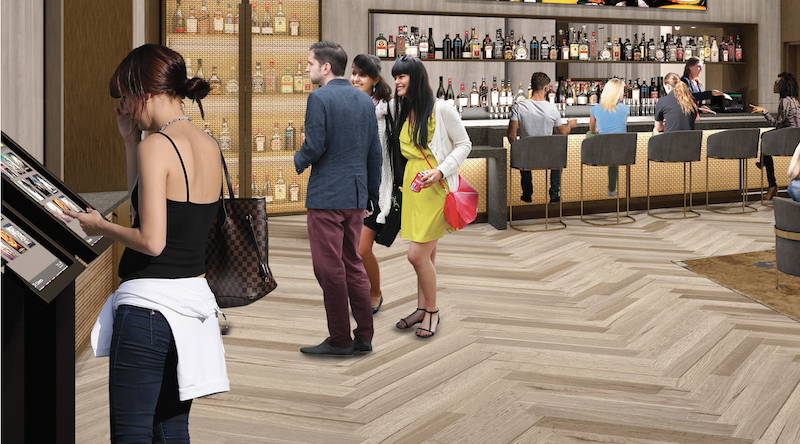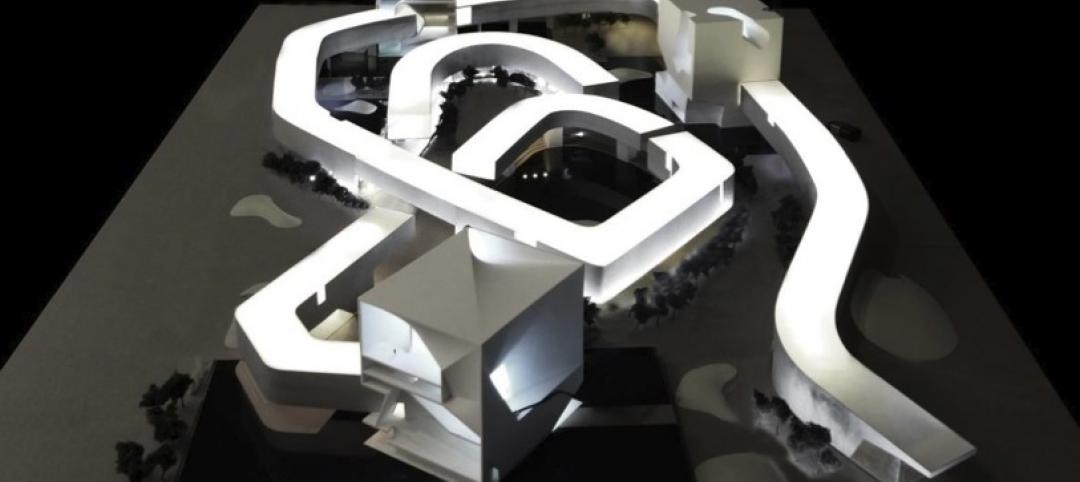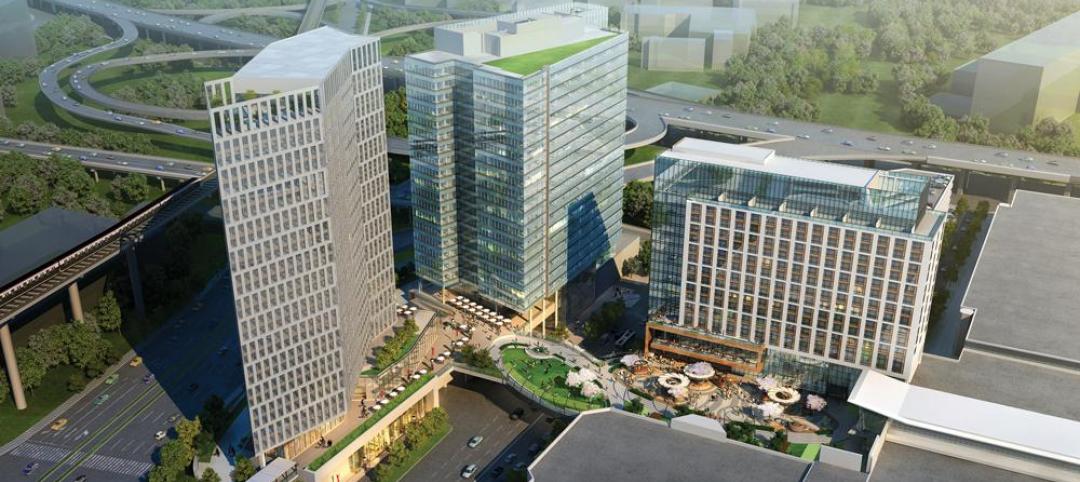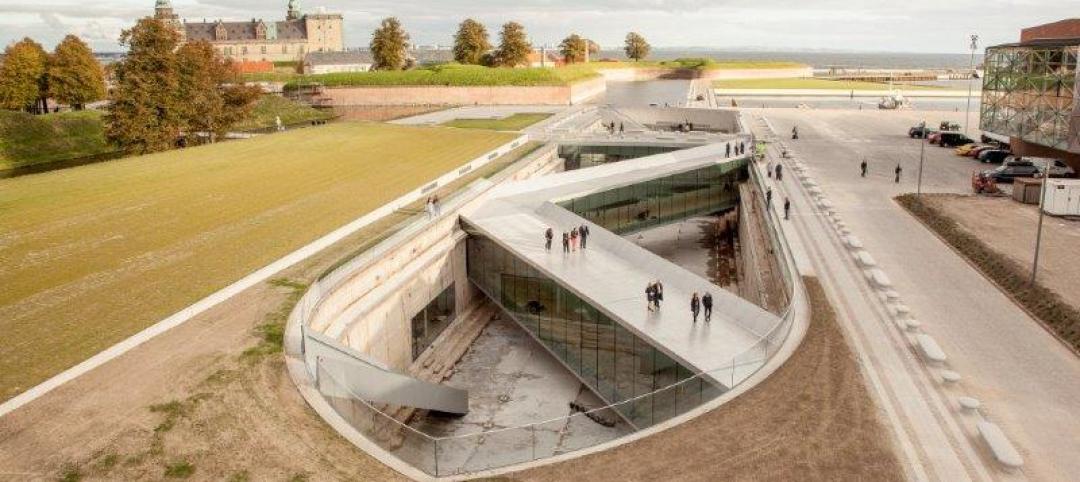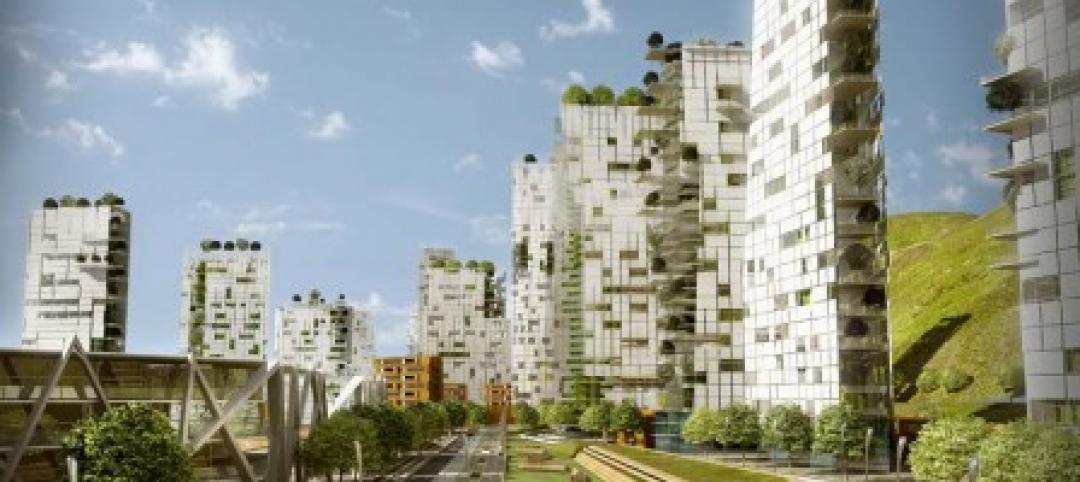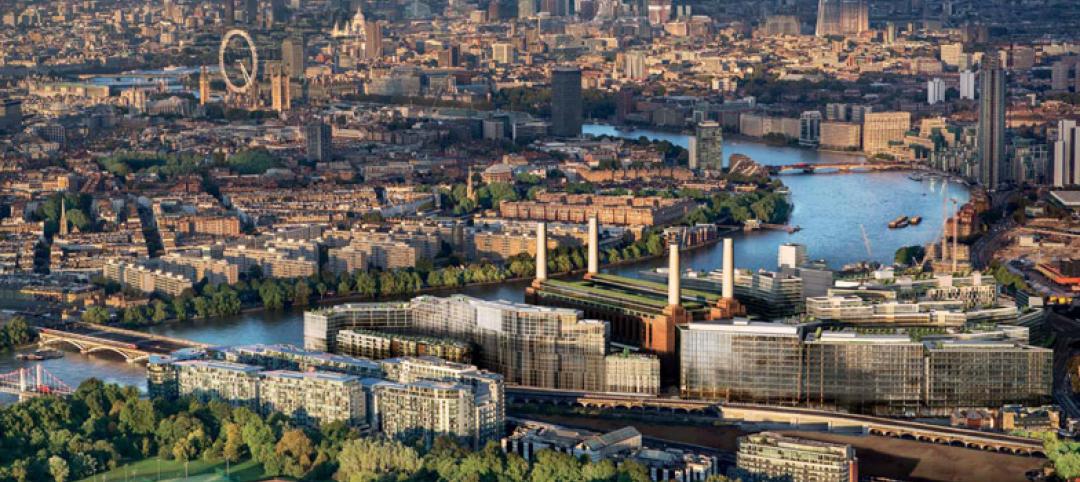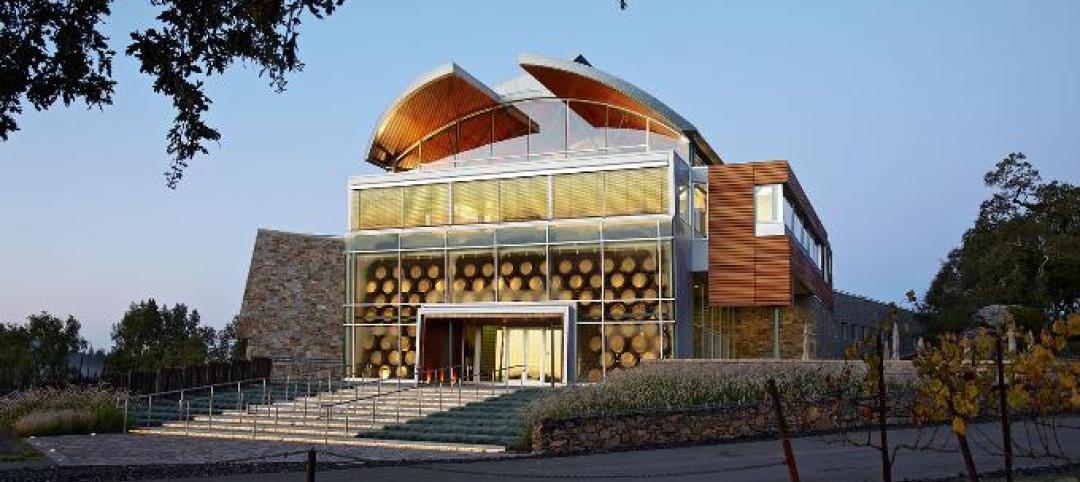The history of the Bay Theater in Pacific Palisades, Calif., could be seen as symbolic of the movie theater business’ past, present, and possible future.
Originally opened in 1948, The Bay has been closed since 1978, when it was converted to a hardware store. But over the past three years, Cinepolis USA and the shopping center developer Caruso Affiliated have been working with the design firm Retail Design Collaborative to bring this theater back to life through a major renovation that will feature five screening rooms, each with 40 to 60 reclining seats, reserved seating, a video wall, and call buttons for food and beverage wait service.
The theater, when it reopens as Bay Theater by Cinepolis Luxury Theaters on September 22, will include one remnant of its former glory: its original marquee, designed by S. Charles Lee. Curbed reports that the theater restoration is part of a larger downtown revival called Palisades Village that Caruso—which built The Grove in Los Angeles—is spearheading, and will include a park, restaurants, offices, eight residential units, plus a specialty grocery store, community room, and bank.
It’s news any time a new movie theater opens. The number of indoor movie screens in the U.S. has been pretty stagnant lately, hovering between 39,400 and 40,000 over the past four years, according to the National Association of Theater Owners. The opening in July of a 14-screen, 68,380-sf CMX Theater in Tallahassee, Fla., was the first new theater in that market since 1996.
Movie theater audiences have been shrinking in this era of streaming video. But those audiences are still mostly young. While 25- to 39-year-olds account for nearly one quarter of ticket sales, the 18- to 24-year-old cohort represents a disproportionate segment of ticket buyers (16%) compared to its portion of the U.S. population (10%), according to the Motion Picture Association of America (MPAA). Children ages 2 through 17 make up another 24% of ticket buyers.
Younger movie goers are presumed to be tech savvier, so it’s hardly surprising that owner operators and developers—as they reposition theaters based on demographics and location—are turning to technology to enhance the movie-going experience, like 4K digital projection onto gigantic screens, and sonic sound in screening rooms.
But audiences are also looking for more than just sensation. “Now, what’s wanted is more of an intimate experience,” says Mitra Esfandiari, AIA, Senior Principal with Long Beach, Calif.-based Retail Design Collaborative, which has been designing cinemas for 25 years. Theater design, she says, is more hospitality focused, with better finishes, “iconic” lobbies, interesting and comfortable furniture and lighting, and a bar component.
She points out that while ticket sales in the U.S. are down (last year ‘s 1.239 million tickets sold was its lowest level in 25 years, according to Box Office Mojo), total revenues are actually up because theaters are getting better at monetizing assets like food and beverage. “People are social animals, but they are picky. They want high-quality food,” says Esfandiari, noting that one operator she spoke with recently changed its menu to a more artisanal offering.
And while reclining seats significantly reduce a screening room’s capacity, Esfandiari says that theaters have been able to charge more per seat.
(AMC Entertainment Holdings, the world’s largest movie exhibitor with more than 1,000 theaters and 11,000 screens, reported on August 2 that its total revenue for the six months ending June 30 rose 13.8% to $2.86 billion; food and beverage alone contributed $856 million to that total, and was up 10.4%.)
FILLING DIFFERENT SPACES
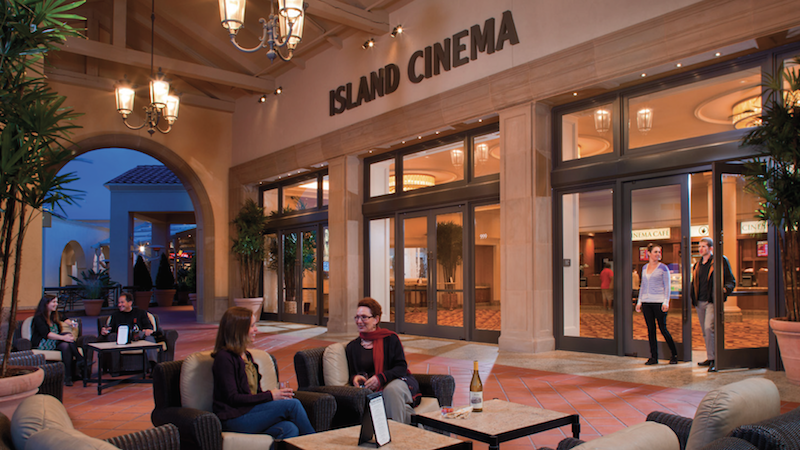
The seven-screen Island Cinemas in Newport Beach, Calif., features a lobby with granite coutertops, Tuscan stone columns, and panelized Alder wood treatments. Its concession area offers an array of gourmet menu items, as well as domestic and imported beer, wine, and champagne. Image: Retail Design Collaborative.
The Bay is one of the smaller theaters that Retail Design Collaborative has worked on lately. But on the whole, theaters have been getting smaller, to an average of around 30,000 sf, versus 70,000 sf in previous decades, says Esfandiari. One of her firm’s clients is Maya Cinemas, which specializes in building theaters for an urban footprint in underserved Latino markets. (Hispanics account for 21% of annual ticket sales, according to MPAA statistics.)
Esfandiari points out that, with so many retail stores closing around the country, theaters are becoming “good solutions” to fill those empty boxes. Her firm, in fact, has been working with landlords and developers that want theaters as anchors for their lifestyle centers.
Movie theater operators seem open to anything that will put more fannies in seats, and that, for some, includes booking gaming events, which have become wildly popular in some cities, on slower weekday nights. “You can serve food and drinks at these, too,” says Esfandiari.
Related Stories
| Nov 13, 2013
First look: Renzo Piano's addition to Louis Kahn's Kimbell Art Museum [slideshow]
The $135 million, 101,130-sf colonnaded pavilion by the famed architect opens later this month.
| Oct 30, 2013
15 stellar historic preservation, adaptive reuse, and renovation projects
The winners of the 2013 Reconstruction Awards showcase the best work of distinguished Building Teams, encompassing historic preservation, adaptive reuse, and renovations and additions.
| Oct 30, 2013
Steven Holl selected for Culture and Art Center in Qingdao, besting Zaha Hadid, OMA
Steven Holl Architects has been selected by near unanimous jury decision as the winner of the new Culture and Art Center of Qingdao City competition, besting OMA and Zaha Hadid Architects. The 2 million-sf project for four museums is the heart of the new extension of Qingdao, China, planned for a population of 700,000.
| Oct 30, 2013
11 hot BIM/VDC topics for 2013
If you like to geek out on building information modeling and virtual design and construction, you should enjoy this overview of the top BIM/VDC topics.
| Oct 29, 2013
BIG opens subterranean Danish National Maritime Museum [slideshow]
BIG (Bjarke Ingels Group) has completed the Danish National Maritime Museum in Helsingør. By marrying the crucial historic elements with an innovative concept of galleries and way-finding, BIG’s renovation scheme reflects Denmark's historical and contemporary role as one of the world's leading maritime nations.
| Oct 28, 2013
Urban growth doesn’t have to destroy nature—it can work with it
Our collective desire to live in cities has never been stronger. According to the World Health Organization, 60% of the world’s population will live in a city by 2030. As urban populations swell, what people demand from their cities is evolving.
| Oct 23, 2013
Gehry, Foster join Battersea Power Station redevelopment
Norman Foster and Frank Gehry have been selected to design a retail section within the £8 billion redevelopment of Battersea Power Station in London.
| Oct 18, 2013
Meet the winners of BD+C's $5,000 Vision U40 Competition
Fifteen teams competed last week in the first annual Vision U40 Competition at BD+C's Under 40 Leadership Summit in San Francisco. Here are the five winning teams, including the $3,000 grand prize honorees.
| Oct 18, 2013
Researchers discover tension-fusing properties of metal
When a group of MIT researchers recently discovered that stress can cause metal alloy to fuse rather than break apart, they assumed it must be a mistake. It wasn't. The surprising finding could lead to self-healing materials that repair early damage before it has a chance to spread.
| Oct 7, 2013
10 award-winning metal building projects
The FDNY Fireboat Firehouse in New York and the Cirrus Logic Building in Austin, Texas, are among nine projects named winners of the 2013 Chairman’s Award by the Metal Construction Association for outstanding design and construction.


